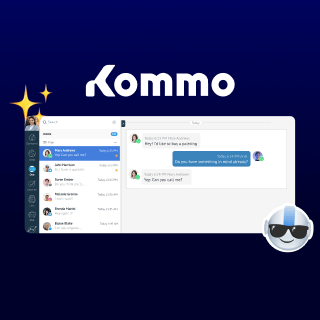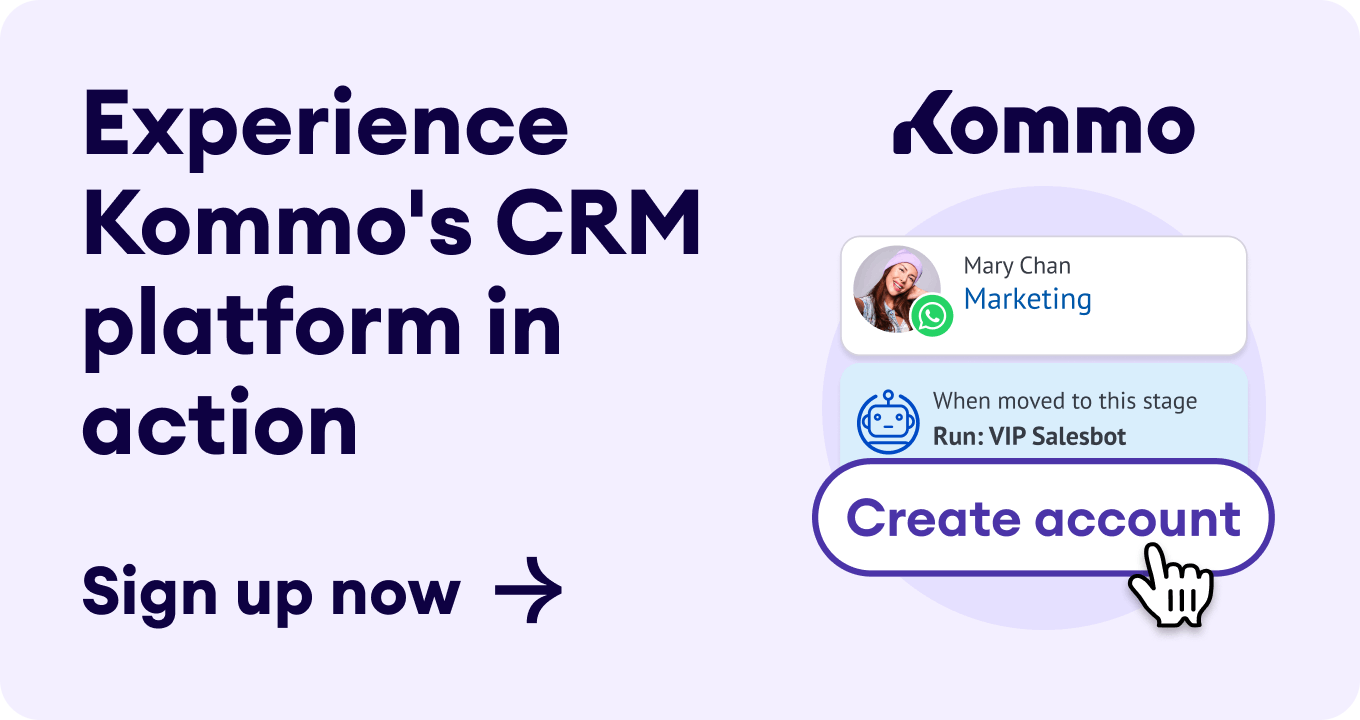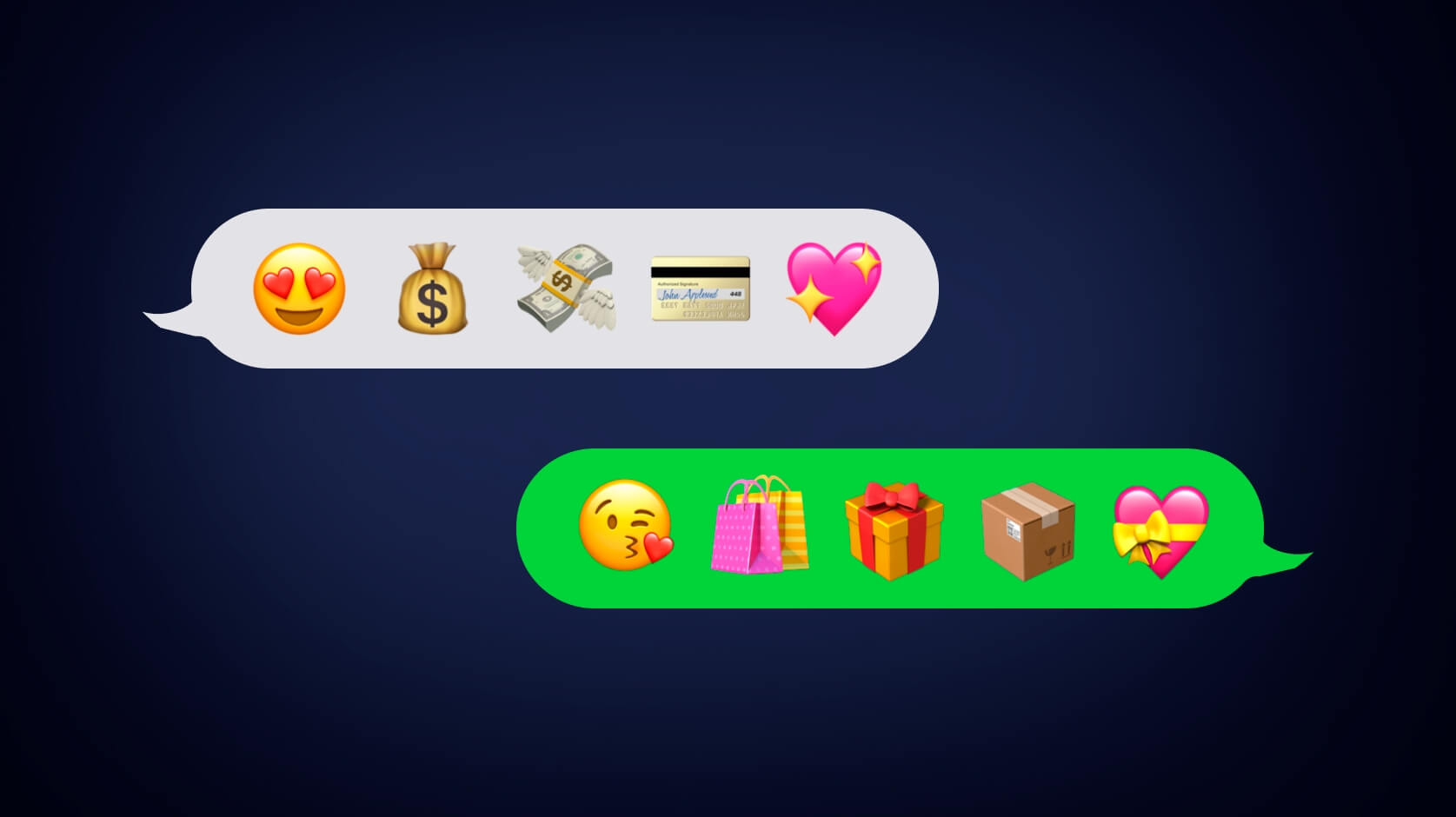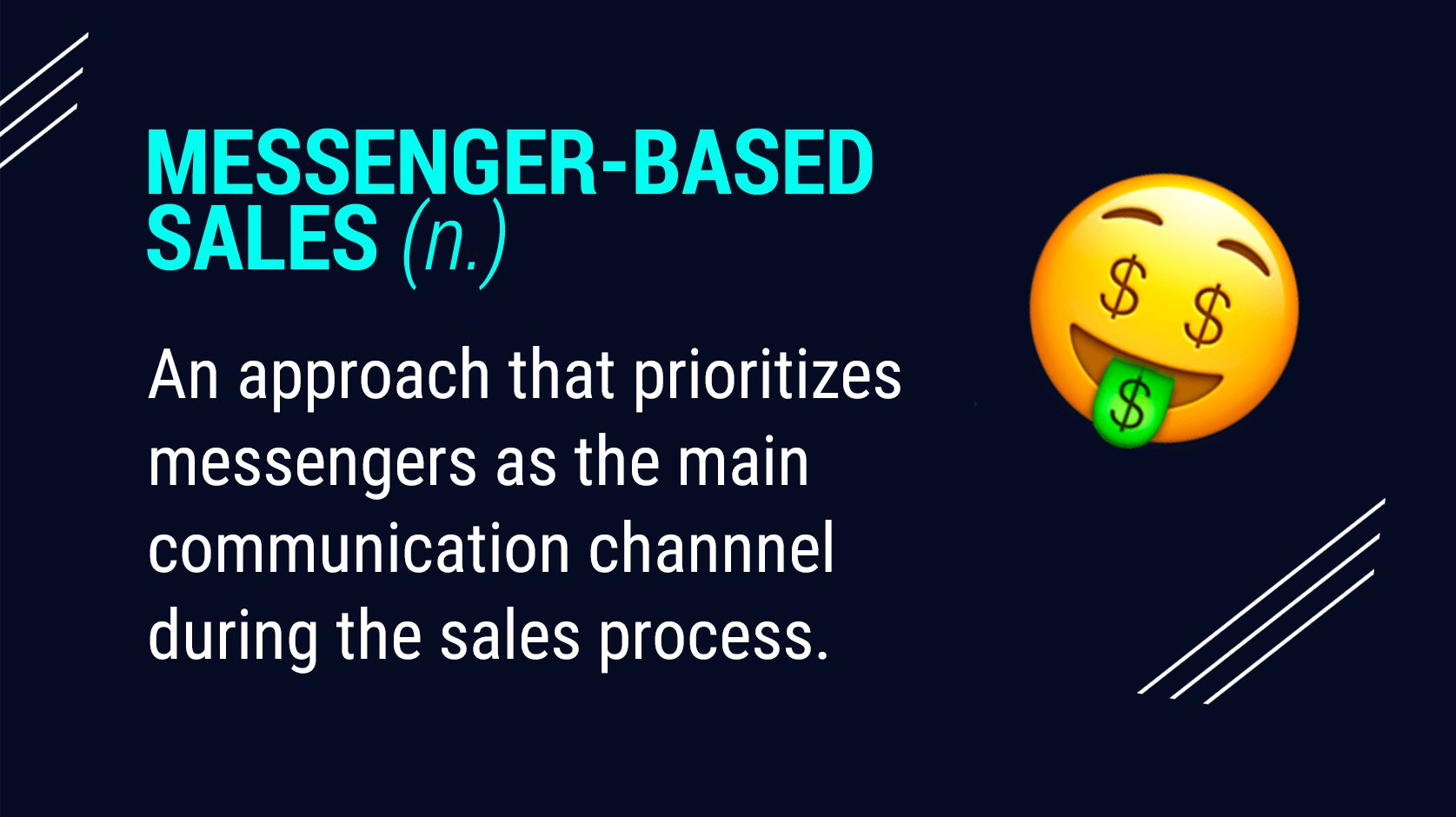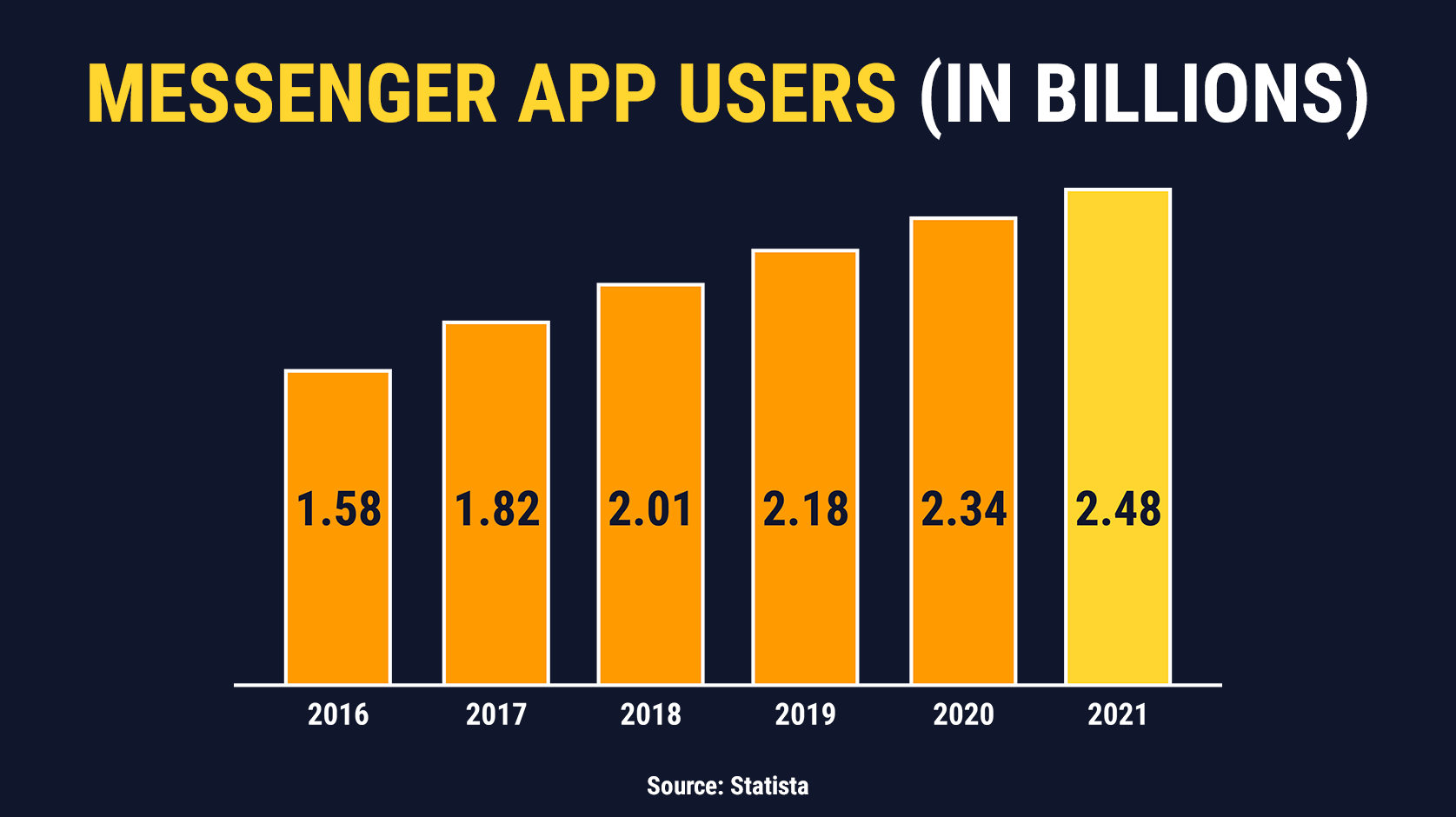What is Messenger-Based Sales?
In the past few years, messaging has become the fastest growing channel of communication. And the rise of messenger apps has brought about a shift — not only in the way people communicate with their friends and coworkers — but also with businesses.
People just love texting.
They love the high speed of communication, the convenience. Plus it’s less formal. You can answer back in a flash, and dress up your message with emojis and gifs, reducing the ambiguity in what you’re trying to say.
Messenger-based sales (MBS) is a strategy that prioritizes messengers as the primary communication channel between a buyer and a company throughout the sales process.
That’s not to say that phone calls, lead forms, email campaigns, or gated content don’t work.
They do.
But MBS ranks messaging apps as the best tool for communication.
That’s because today’s customer is the same human being when they’re shopping and when they’re not — they still want to cut through the BS and the formalities and have their questions answered instantly. And that goes for B2B buyers too.
MBS attempts to create a presence in communication channels that customers use most. It offers real-time and personalized experiences.
Most importantly, it recognizes the power and autonomy of a modern consumer by giving them the control to contact your business how and when they want.
And for today’s customer that’s messaging.
But guess what else... if you’re not there, your competitors will certainly be there soon. After all, we’re living in a world of service where businesses are obsessed with delivering and maximizing the best customer experience.
One of the greatest things about adopting the MBS approach is that it doesn’t require any fundamental changes in your company. Prominent brands across a variety of industries are already on board and implementing messaging apps to be where modern buyers are.
Why is Messenger-Based Sales a business trend?
Just like the world, businesses change, develop, and grow every single day. New customer needs and demands evolve, and companies must learn how to meet what their customers are embracing. Are you keeping up with these trends or you getting left behind completely?
Messaging is a perfect example of a trend that is revolutionizing communication in our society, and that will continue to affect the way brands and customers interact with each other.
The Active Status
In 2014, people were were surprised when Mark Zuckerberg claimed that messaging was one of the few activities that “people do more than social networking”.
But he was right. And the trend hasn’t stopped.
In 2015, Business Insider confirmed that the world’s top chat apps (WhatsApp, Messenger, WeChat and Viber) had surpassed top social networks (Facebook, Twitter, Instagram, and Google+) in active users. People were spending more time in messaging apps than on social media!
In 2019, WhatsApp boasts 1.6 billion active users and Facebook Messenger has 1.3 billion (Statista) buy from the brand that replies first. That’s way more than the population of the US, Canada and Europe — combined.
We’re getting more and more comfortable at sharing our photos with family, friends and colleagues via messaging apps rather than through social networks.
And even after all this growth, the trend isn’t fizzling out.
In addition to Messenger, Facebook now owns WhatsApp and Instagram (another app where people send loads of messages). Zuckerburg is betting on messaging, this year making bold statements that it will be increasingly important to the future of Facebook and the internet itself.
One of the biggest reasons? Because people have started to prefer sharing privately (via messenger) than publicly (via newsfeeds). Does this mean that the era of oversharing is beginning to come to an end…? 🤔
Stats about messaging
The “always-on” technologies have impacted our lives to the extent that the average American checks their phone80 times a day and once every 12 minutes.
Additionally, research finds that consumers rank messaging as the number one customer service channel in South Korea, Singapore, India and the US.
Another study also backs this up, showing that 9/10 people globally expect to be able to use messaging apps to engage with businesses.
The modern customer in a constantly connected world
As we all know, email and phone used to be the dominant means of communication between businesses and customers. Brands used to reach out to customers via messages that they would blast out to a mass audience, hoping that someone would end up on their company’s online platform or get interested in their product or service.
Nowadays it's pretty clear that today’s buyers are fed up of being bombarded with an infinite number of intrusive ads, emails, promotions and pop-ups. It’s for this reason their attention span has significantly declined.
They have finally gained control over what they decide to purchase. They study ratings, analyze comments, leave reviews (that can damage your brand big time) and form their opinions based on their research.
Ok, so you saw that a website is not enough, and you got a presence on social media. That’s a great start.
But the tech revolution and the age of device-dependency has empowered consumers to the extent that generating leads and reaching out has become incredibly expensive and difficult. Posting on Facebook or instagram can help, but it isn’t gonna solve this problem.
So, what’s the solution to breaking through the noise? To find out, you need to ask the essential question: Where are my potential customers right now?
The answer is messengers.
They are impatiently chatting, and unlike decades ago, they expect your company’s response immediately, or they’re moving on. In fact, fast responses matter so much that Lead Connect finds that 78% of customers buy from the brand that replies first.
Following up with someone only a few days after they’ve left their contact details via time-consuming lead capture forms or email is almost equal to ignoring this lead.
On top of that, it leaves a bad taste in their mouth. Why? Because customers feel that brands are obliged to be there for them whenever they need them. Studies show that out of 433 companies, only 32 respond within the first 5 minutes.
With messengers, you can avoid running this risk and answer customer’s questions straightaway in real-time. Chat apps have enabled businesses to interact and respond to leads fast and instantaneously.
As an aside, even though your team isn’t available 24/7, chatbots can automate your messages quickly schedule appointments, reply to repetitive questions, and in general speed up your company’s workflow by performing mundane tasks. In addition to a speedy workflow, you should consider setting up a mobile archiving solution which would let you to automatically preserve all this communication and be prepared for litigation.
How MBS offers a solution
Messenger-Based Sales is the answer to finding and attracting new customers in a competition for customer attention.
Let’s add contrasts, dive in and understand why Messenger-Based Sales is the new way to get your customer’s attention and increase your revenue.
Messengers versus email
When it comes to other forms of communication, for instance emails, messaging apps tend to be less strict.
There’s no need for a subject line. You don’t need salutations or a signature. You don’t have to split paragraphs or even stick to perfect punctuation. The purpose of chatting lies in an easy and short on-screen text, that can be scanned and responded to instantly.
Customers also receive huge volumes of emails regularly, increasing the chances of your email being ignored, making the fight for their attention harder and harder.
Is it any surprise that only 23.9% of sales emails are opened?
Messages not only are easier to read, but they’re just more clickable. No wonder they boast up to a 60% click through rate.
Messengers versus phone
Calling is an awesome way to relay information fast and get feedback. But let’s be real: having a phone call is a separate task on its own. You have to book it and both show up at an arranged time.
And how much does it suck when the connection is bad? You start feeling like Adele.
Messaging, on the other hand, offers asynchronous communication. You don’t have to be in sync with the other person — you can respond when you want. It helps to avoid awkwardness, uncomfortable pauses and silence in general. Plus, it isn’t limited to days and times of the week.
All that plus the fact that calling is ephemeral — The words disappear into thin air.
Imagine that you talked to a lead on the phone, but forgot to write their address down. Well, you’d have to call back and ask again. That is, unless you recorded it — meaning you have to search through audio for what you’re looking for.
Scrolling through chat messages is also not really fun, but it’s a heckuva lot faster than searching through a voice recording. I don’t know about your team, but our team often has to search back through old talks with leads, so chat is incredibly useful.
Messengers versus live chat
It’s also important to understand the difference between live chat and messaging apps. Although live chat may still be used as a solution to offering support, helping with buying decisions, or providing a pleasant customer experience, it’s still not as effective as MBS.
After all, how many times have you encountered “all chat agents are currently unavailable to serve you right now. Please wait, we will get back to you shortly” after your request?
As mentioned earlier, companies can’t afford keeping potential and existing customers “on-hold”.
Typically, live chat requires that a representative be present to respond to the visitor. If a chat agent doesn’t reply quickly, then your lead will feel frustrated and abandoned.
Another disadvantage of this feature is that unless you stay on the website the whole time while chatting with a user, the conversation might get lost.
The good thing is that live chat is evolving.
It has become more sophisticated, offering quick replies for frequently asked questions, as well as the ability to close the webpage without losing the conversation. Even better — live chat can take advantage of chatbots, making it possible to offer full support to all visitors 24/7.
Good live chat definitely has a place in your MBS arsenal!
A fresh attitude towards communication 😎
Another perk of using messengers to connect with your customers is its positive, expressive and visual nature.
Messaging apps offer various features that can enhance communication with your customers help you build rapport like:
- 1. Emojis
- 2. Stickers
- 3. GIFs
- 4. Reminders
- 5. Location
- 6. Sending and receiving money
- 7. Polls
- 8. Group chats
- 9. Quick replies
Statistics for the love of visual messaging speak for themselves. On Facebook Messenger in 2017, people sent over 500 billion emojis (that’s around 1.7 billion per day) and 18 billion GIFs. Many companies haven’t missed on the growing trend toward visual messaging. Domino’s, for instance, introduced a chatbot feature to allow clients to order pizza using a single pizza emoji.
Whole Foods launched a Facebook Messenger bot that was built to help customers shop for groceries and new meals, where a customer can easily discover a recipe by sending a food emoji.
Similarly, celebrity chef Jamie Oliver also created a Messenger bot that can provide users with cooking directions and inspiration all via emojis. This fresh attitude towards communication is becoming the new norm that also help businesses get more creative.
Why Messenger-Based sales is the future of business
To say that Messenger-Based Sales is the future may seem like a quiet bold statement, but there’s a lot of evidence.
Messaging apps are focused on businesses
Messenger apps have noticed the demand for business interactions via chat and are changing their product to fit this need.
Facebook Messenger
At Facebook’s F8 developer conference last year, the company announced that they were rolling out several features for businesses. One such feature — the ability to schedule appointments through Messenger, came about when they noticed that loads of people were connecting on the chat app to do just that.
The new feature will ping users before the event with notifications. And most importantly, appointments can be synced up with calendaring software.
Another vital tool for businesses that Facebook has proposed is running lead-generation campaigns via Messenger. The idea is to help companies to better connect with their potential customers and to generate and convert more leads.
This happens by creating an ad that takes the user to a couple of automated questions and answers, to find out what product or service the potential customer wants. Also, this tool comes in handy because it doesn’t require you to constantly monitor your Messenger inbox.
WhatsApp
Over five million businesses use WhatsApp Business to expand their companies and grow globally. Only recently, however, due to a considerable number of small business owners’ requests, WhatsApp has become available for iOS.
The messaging platform has emphasized that it is planning to keep releasing more features that could make it easier for brands to find, reach, and nurture their customers.
Apple Business Chat
Another platform, Apple Business Chat, has also jumped on the bandwagon. It has decided to compete with other businesses that are conquering messaging for business, including LINE, Messenger, WhatsApp and WeChat.
This year, together with the iOS 11.3 update, it introduced the very first version of Apple Business Chat, which will allow customers to reach out to companies, pay via Apple Pay, schedule appointments and reminders, and receive customer service through the Messaging app. Moreover, businesses can use Apple Business Chat in case they want to use iOS-integrated Chatbots.
Preparing for Gen Z
Technology, of course, will continue to grow in unpredictable ways that totally changes the way future generations connect.
Gen Z, unlike previous generations, isn’t only hyper-connected or tech savvy — they have not experienced life without the Internet.
And for most of their lives, they’ve lived with more than one digital device.
Research shows that 78% of teens of Gen Z prefer to use a smartphone over other devices, and 91% use it for going online.
Most importantly, studies have found that the primary reason this demographic accesses the Internet is to chat with their friends and family, with over 50% chatting more than 3 hours per day. But an even more lucrative finding for businesses — Gen Z is also willing to communicate with brands that way.
What’s your email address? Sorry, I don’t use email...
Studies have revealed that gen Z isn’t asocial — they love communicating on chat apps (as well as face-to-face). But they’re not fans of email at all.
Think about it: how many teens aged 13 to 17 would respond to your email today? Ask your gen Z relatives if they use emails. Most probably, they find emails boring and unnecessary. The same applies to phone calls.
Who cares what Gen Z wants?
Not interested in appealing to the 13 year old next door? Maybe this will get your attention — it’s been reported that by 2020 generation Z will be the largest group of consumers.
In addition to appreciating convenience, the digital natives value quality of a product or service, diversity and practicality. They also expect their buying experiences to be personalized and to transit smoothly from one business channel to another.
Isn’t Messenger-Based Sales the perfect strategy to achieve this?
Download our latest book Delivered and learn more about how to produce a convenient and comfortable buying experience through messengers.
🚀 Make a personal sale with Kommo
✅ Kommo is a pioneering Messenger Based Sales CRM software that helps businesses achieve more sales and create long-lasting relationships with their customers. It is a tool that enables companies to reach better results and increase their profits.
